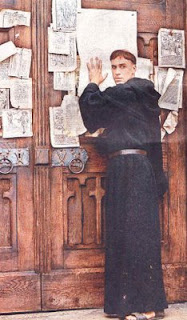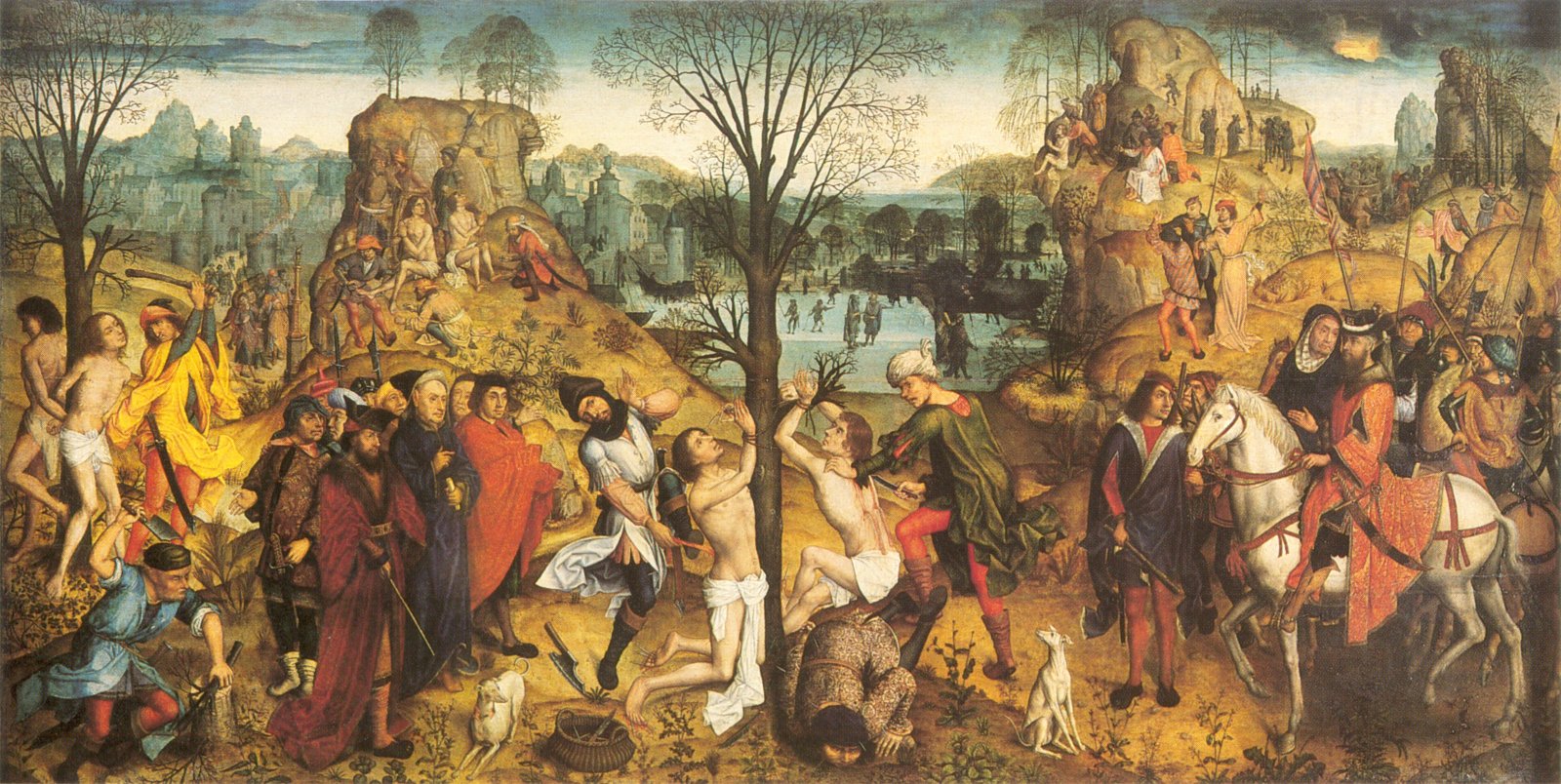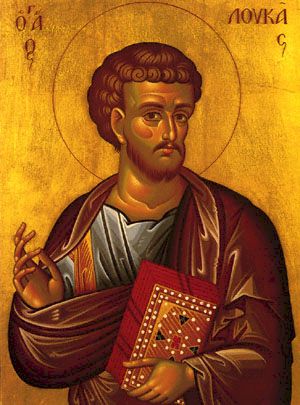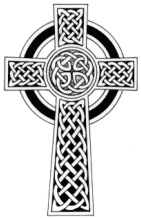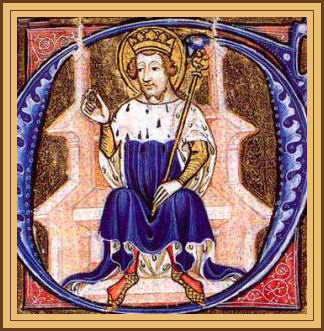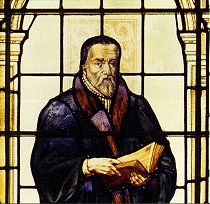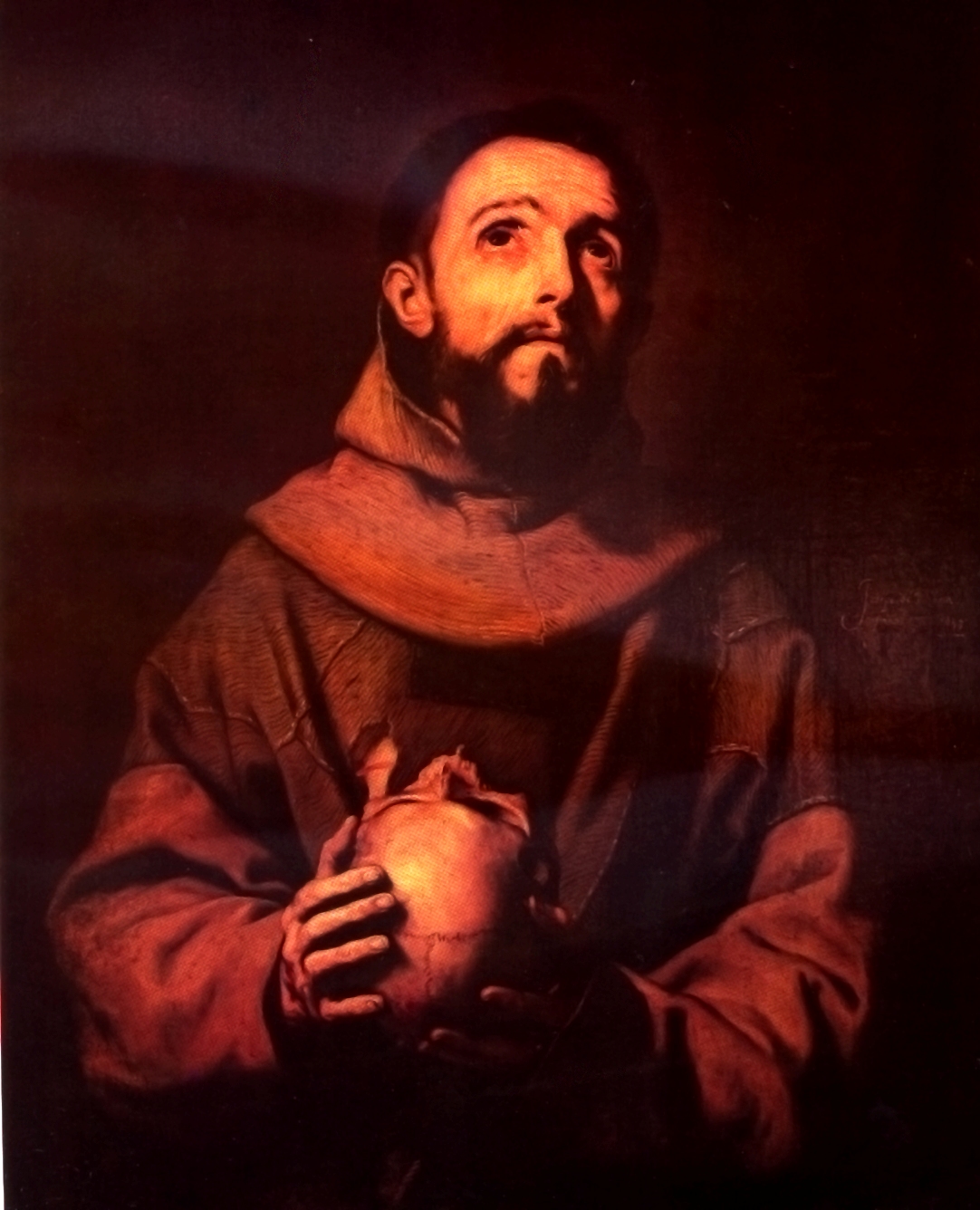
(Hebrew: יעקב or Jacob) (Greek Iάκωβος), (died 62AD), also known as James of Jerusalem, James Adelphotheos, James, the Brother of the Lord, was an important figure in Early Christianity. According to Christian tradition, he was the first Bishop of Jerusalem, the author of the Epistle of James in the New Testament, and the first of the Seventy of St. Luke 10:1–20. Paul of Tarsus in Galatians 2:9 (KJV) characterized James as such: "…James, Cephas, and John, who seemed to be pillars…" He is described in the New Testament as a "brother of the Lord" and in the Liturgy of St James as "the brother of God" (Adelphotheos).
James is mentioned briefly in connection with Jesus' visit to Nazareth (M 13:55; P 6:3).
We are told that Jesus' brothers did not believe in Him (J 7:2-5), and from this, and from references in early Christian writers, it is inferred that James was not a disciple of the Lord until after the Resurrection.
Paul, listing appearances of the Risen Lord (1 Cor 15:3-8), includes an appearance to James.
Peter, about to leave Jerusalem after escaping from Herod, leaves a message for James and the Apostles (A 12:17).
When a council meets at Jerusalem to consider what rules Gentile Christians should be required to keep, James formulates the final consensus (A 15:13-21).
Paul speaks of going to Jerusalem three years after his conversion and conferring there with Peter and James (G 1:18-19), and speaks again of a later visit (perhaps the one described in A 15) on which Peter, James, and John, "the pillars," placed their stamp of approval on the mission to the Gentiles (G 2:9).
A few verses later (G 2:11-14), he says that messengers from James coming to Antioch discouraged Jewish Christians there from eating with Gentile Christians. (If this is refers to the same event as A 15:1-2, then Paul takes a step back chronologically in his narration at G 2:11, which is not improbable, since he is dictating and mentioning arguments and events that count as evidence for his side as they occur to him.)
On his last recorded visit to Jerusalem, Paul visits James (others are present, but no other names are given) and speaks of his ministry to the Gentiles (A 21:18).
According to a passage in Josephus's Jewish Antiquities, (xx.9) "the brother of Jesus, who was called Christ, whose name was James" met his death after the death of the procurator Porcius Festus, yet before Lucceius Albinus took office (Antiquities 20,9) — which has thus been dated to 62. The High Priest Ananus ben Ananus took advantage of this lack of imperial oversight to assemble a Sanhedrin who condemned James "on the charge of breaking the law," then had him executed by stoning. Josephus reports that Ananus' act was widely viewed as little more than judicial murder, and offended a number of "those who were considered the most fair-minded people in the City, and strict in their observance of the Law," who went as far as meeting Albinus as he entered the province to petition him about the matter. In response, King Agrippa replaced Ananus with Jesus, the son of Damneus.
Though the passage in general is almost universally accepted as original to Josephus, some challenge the identification of the James whom Ananus had executed with James the Just, considering the words, "who was called Christ," a later interpolation. (See Josephus on Jesus.)
Eusebius, while quoting Josephus' account, also records otherwise lost passages from Hegesippus (see links below), and Clement of Alexandria (Historia Ecclesiae, 2.23). Hegesippus' account varies somewhat from what Josephus reports, and may have been an attempt to reconcile the various accounts by combining them. According to Hegesippus, the scribes and Pharisees came to James for help in putting down Christian beliefs. The record says:
“ They came, therefore, in a body to James, and said: "We entreat thee, restrain the people: for they are gone astray in their opinions about Jesus, as if he were the Christ. We entreat thee to persuade all who have come hither for the day of the passover, concerning Jesus. For we all listen to thy persuasion; since we, as well as all the people, bear thee testimony that thou art just, and showest partiality to none. Do thou, therefore, persuade the people not to entertain erroneous opinions concerning Jesus: for all the people, and we also, listen to thy persuasion. Take thy stand, then, upon the summit of the temple, that from that elevated spot thou mayest be clearly seen, and thy words may be plainly audible to all the people. For, in order to attend the passover, all the tribes have congregated hither, and some of the Gentiles also.
To the scribes' and Pharisees' dismay, James boldly testified that Christ "Himself sitteth in heaven, at the right hand of the Great Power, and shall come on the clouds of heaven." The scribes and pharisees then said to themselves, "We have not done well in procuring this testimony to Jesus. But let us go up and throw him down, that they may be afraid, and not believe him."
”
Accordingly, the scribes and Pharisees
“ …threw down the just man… [and] began to stone him: for he was not killed by the fall; but he turned, and kneeled down, and said: "I beseech Thee, Lord God our Father, forgive them; for they know not what they do."
And, while they were thus stoning him to death, one of the priests, the sons of Rechab, the son of Rechabim, to whom testimony is borne by Jeremiah the prophet, began to cry aloud, saying: "Cease, what do ye? The just man is praying for us." But one among them, one of the fullers, took the staff with which he was accustomed to wring out the garments he dyed, and hurled it at the head of the just man.
And so he suffered martyrdom; and they buried him on the spot, and the pillar erected to his memory still remains, close by the temple. This man was a true witness to both Jews and Greeks that Jesus is the Christ.”Vespasian's siege and capture of Jerusalem delayed the selection of Simeon of Jerusalem to succeed James.
Josephus' account of James' death is more credible because the Acts of Apostles doesn't mention anything about James after the year 60. Josephus, however, does not mention in his writings how James was buried, which makes it hard for scholars to determine what happened to James after his death.
Robert Eisenman argues that the popularity of James and the illegality of his death may have triggered the First Jewish-Roman War from 66 to 73 C.E.
Propers for James of Jerusalem - Bishop and Martyr
--------------------------------The Collect.
O LORD Jesus Christ, who didst set thy brother James on the throne of thy church in Jerusalem: Grant, we beseech thee, that as he continually made supplication for the sins of thy people, and laboured to reconcile in one body both Jew and Gentile; so thy Church may ever be faithful in prayer and witness for the salvation of all mankind. Grant this, O Son of Man, who art on the right hand of the Father, in the unity of the Spirit, now and ever. Amen.
The Epistle - Acts 15:12-22.THEN all the multitude kept silence and gave audience to Barnabas and Paul, declaring what miracles and wonders God had wrought among the Gentiles by them. And after they had held their peace, James answered, saying, Men and brethren, hearken unto me: Simeon hath declared how God at the first did visit the Gentiles, to take out of them a people for his name. And to this agree the words of the prophets; as it is written,
After this I will return,
And will build again the tabernacle of David, which is fallen down;
And I will build again the ruins thereof,
And I will set it up:
That the residue of men might seek after the Lord,
And all the Gentiles, upon whom my name is called,
Saith the Lord, who hath made these things known from of old.
Wherefore my sentence is, that we trouble not them, which from among the Gentiles are turned to God: but that we write unto them, that they abstain from pollutions of idols, and from fornication, and from things strangled, and from blood. From early times Moses has had in every city them that preach him, being read in the synagogues every sabbath day. Then pleased it the apostles and elders, with the whole church, to send chosen men of their own company to Antioch with Paul and Barnabas; namely, Judas surnamed Barsabas, and Silas, chief men among the brethren.
The Gospel - St. Mark 3:31-35.THERE came then his brethren and his mother, and, standing without, sent unto him, calling him. And the multitude sat about him, and they said unto him, Behold, thy mother and thy brethren without seek for thee. And he answered them, saying,
Who is my mother, or my brethren? And he looked round about on them which sat about him, and said,
Behold my mother and my brethren! For whosoever shall do the will of God, the same is my brother, and my sister, and mother.Reference and Resources:http://www.commonprayer.org/calend/propers/s_jamej.cfmhttp://elvis.rowan.edu/~kilroy/JEK/10/23.htmlhttp://en.wikipedia.org/wiki/James_of_Jerusalem
